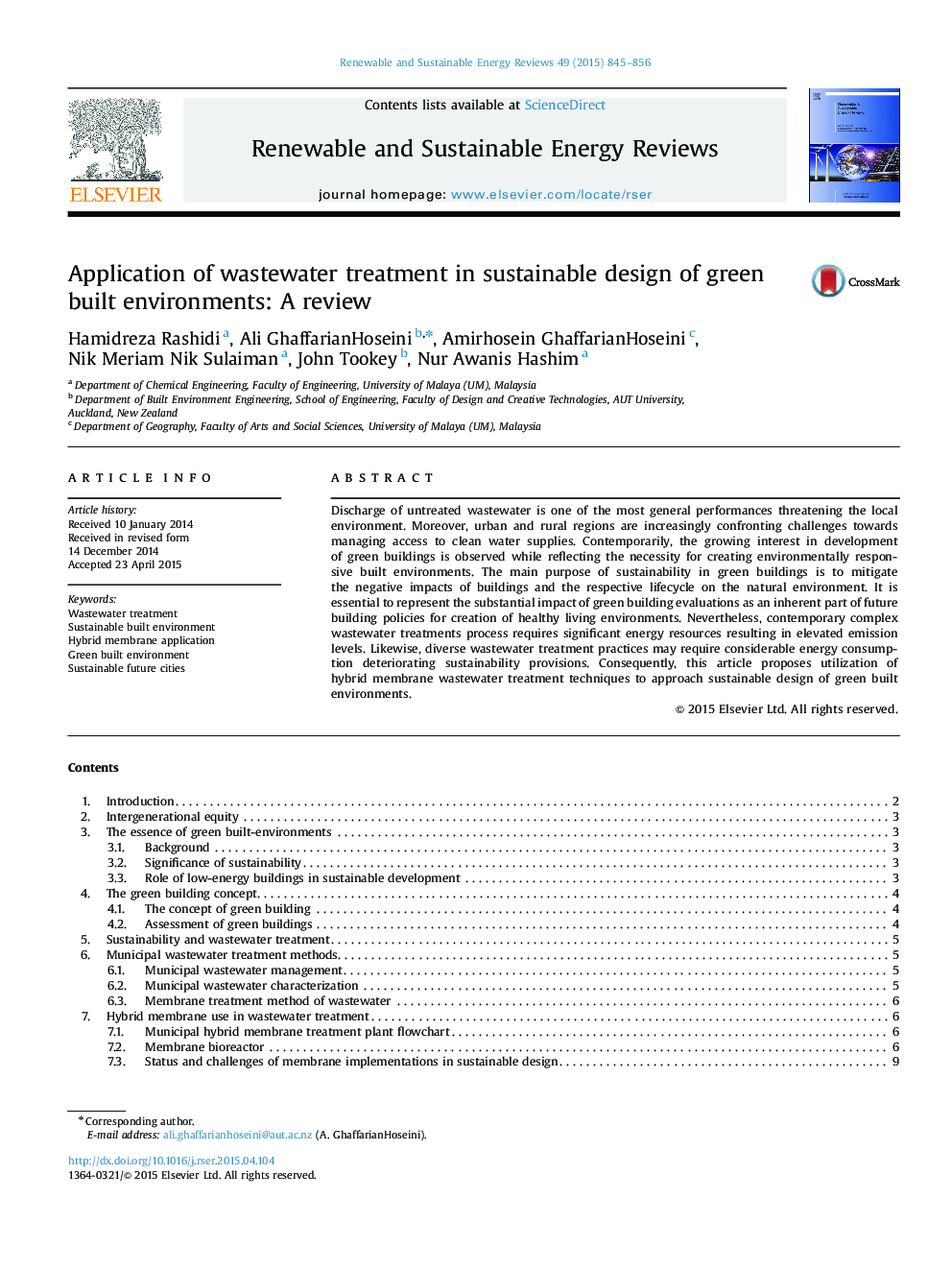| Article ID | Journal | Published Year | Pages | File Type |
|---|---|---|---|---|
| 8116879 | Renewable and Sustainable Energy Reviews | 2015 | 12 Pages |
Abstract
Discharge of untreated wastewater is one of the most general performances threatening the local environment. Moreover, urban and rural regions are increasingly confronting challenges towards managing access to clean water supplies. Contemporarily, the growing interest in development of green buildings is observed while reflecting the necessity for creating environmentally responsive built environments. The main purpose of sustainability in green buildings is to mitigate the negative impacts of buildings and the respective lifecycle on the natural environment. It is essential to represent the substantial impact of green building evaluations as an inherent part of future building policies for creation of healthy living environments. Nevertheless, contemporary complex wastewater treatments process requires significant energy resources resulting in elevated emission levels. Likewise, diverse wastewater treatment practices may require considerable energy consumption deteriorating sustainability provisions. Consequently, this article proposes utilization of hybrid membrane wastewater treatment techniques to approach sustainable design of green built environments.
Keywords
Related Topics
Physical Sciences and Engineering
Energy
Renewable Energy, Sustainability and the Environment
Authors
Hamidreza Rashidi, Ali GhaffarianHoseini, Amirhosein GhaffarianHoseini, Nik Meriam Nik Sulaiman, John Tookey, Nur Awanis Hashim,
